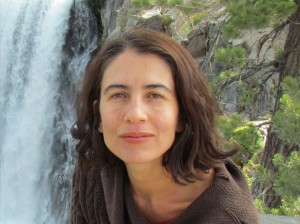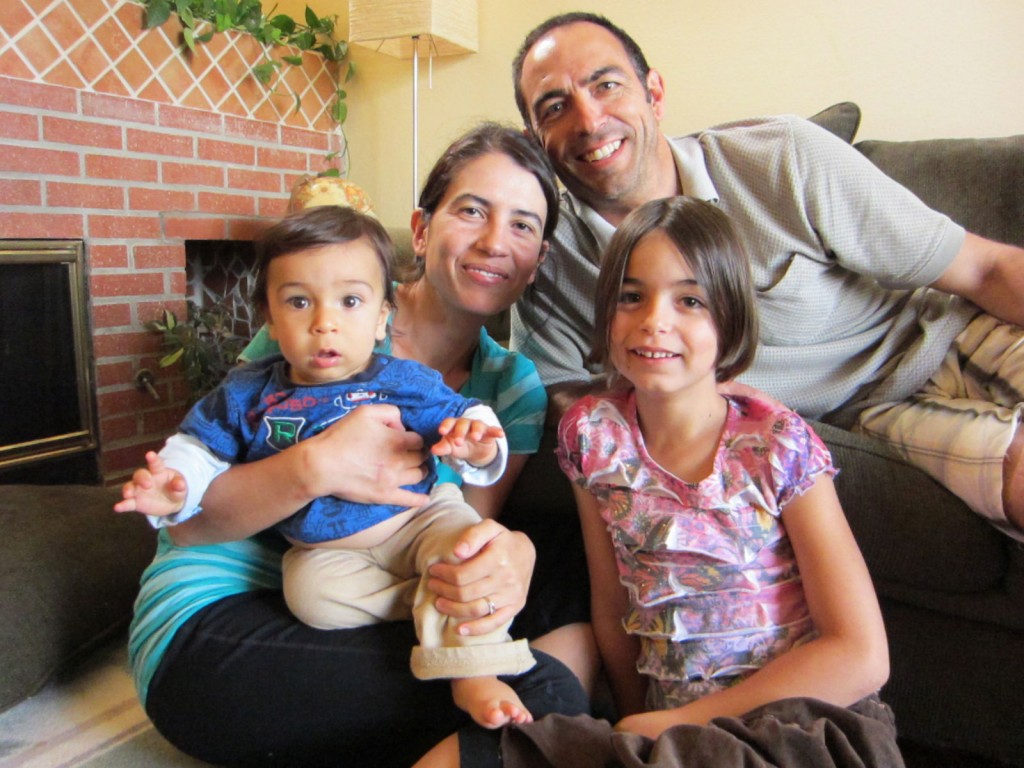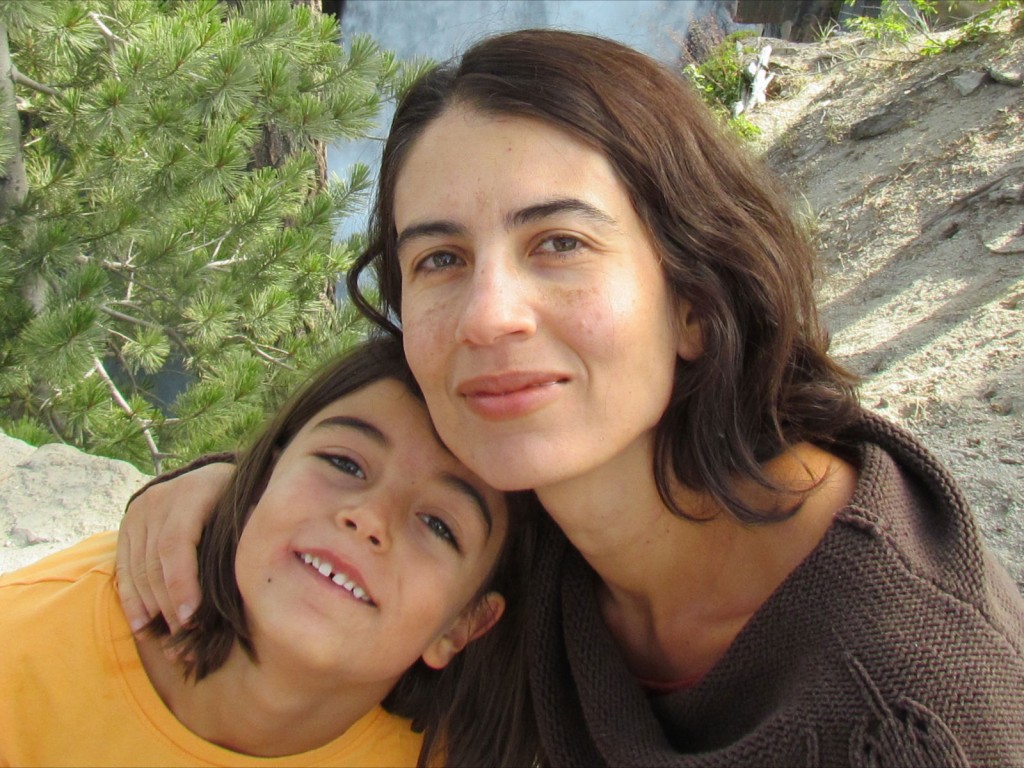Juliet Setian, Associated Blog Contributor
 Juliet Setian graduated from the philosophy of religion program at the Talbot School of Theology in 2001. She lives in Irvine, CA with her husband, Guy and their two children. She homeschools their seven year old daughter, Lucine. She loves to read when she has free time.
Juliet Setian graduated from the philosophy of religion program at the Talbot School of Theology in 2001. She lives in Irvine, CA with her husband, Guy and their two children. She homeschools their seven year old daughter, Lucine. She loves to read when she has free time.
Of Juliet, J.P. has said the following:
"Juliet is a very bright woman with solid educational credentials. I have always been impressed by her steady commitment to Jesus, her values, and her family. She has a depth of reflection and wisdom that is contagious."
We recently interviewed Juliet about her journey, interests, and passions.
Juliet, how would you describe your journey as a disciple of Jesus? Any major themes that describe who you are becoming?
First, I’m at a place where I can see that the eternal kind of life proclaimed by Christ, is the good life. I see its goodness and want it for myself and those whom I love. I see more clearly and better how things fit together. Second, when discouraged and “unhappy” with God, I can, as the poet George Herbert puts it so vividly in “The Collar,” strike, cry, rave, grow fierce and wild, yet, at the end of the day “Me thought I heard one calling, Child. And I reply’d, My Lord.” He has the words of eternal life, where else or to whom shall I go? I believe (and hope) these two things are becoming more true of my life.
What are some of your interests or areas of expertise? How have they been cultivated over the years?
One of my interests is reading and thinking about literature philosophically. Here I’m always learning from Martha Nussbaum and Eleonore Stump. Another one of my interests, since I homeschool, is exploring Charlotte Mason’s philosophy of education. She lived in England in the 1800’s and wrote extensively on children’s education. Her main idea was that children “are thinking, feeling human beings, spirits to be kindled and not vessels to be filled.” I’m part of a forum, made up of many other parents with similar interests and views, where we explore the salient ideas in her philosophy and present/evaluate different ways of application.
What are some topics or themes that you intend to write about as a contributor to the blog at www.jpmoreland.com?
Some major topics I would like to write about are: free will, love, teaching children virtues through stories, philosophy of education. One topic that’s really interested me for a long time is human rebellion against and rejection of God and his offer of reconciliation. Some of Dostoyevsky’s characters show us, in poignant and often heartrending ways, what this could look like. I would like to explore this further and try to understand it in light of some of Kierkegaard’s thoughts expressed in The Sickness Unto Death.
Are you engaged in any further educational or professional enrichment training (formally or informally) at this time? If so, what does that look like and how is that meaningful to you?
I'm not engaged in any formal training but I do read when I can, and so I am being enriched or trained by the books I read. Also, a friend and I do book discussions, which are very enriching and helpful for me. Sharing ideas and impressions with one another not only helps me learn and grow as a person, it also encourages and inspires.
As a former student of JP’s, what did you most enjoy or appreciate about his teaching and leadership?
I really enjoyed his lectures. They were always rich, thought-provoking and inspiring. I also appreciated how much he reached out to us, the students. He met with a group of us, regularly, to discuss Dallas Willard’s Divine Conspiracy. That really meant a lot to me.
Any funny Moreland story or memorable Moreland-ism that you enjoy?
I can think of something very memorable that Dr. Dallas Willard once said about Dr. Moreland: that he thought Dr. Moreland was, probably, the best philosopher in the country. Dr. Willard was, for me, the epitome of excellence--excellent teacher, philosopher, human being. So after his comment about J.P. Moreland I decided I should take his word for it and apply to Talbot, and I’m very glad I did.
When you think about J.P.’s work, which book or theme in his writing/speaking seems to most resonate with your life and thinking? Why that association?
One book that really impacted me is Loving God with All Your Mind. Partly because I was new to Christianity and had questions about faith vs. reason, it was really wonderful and encouraging for me to hear Dr. Moreland speak so strongly about the importance of cultivating a robust intellectual life. I remember being struck when I read that he met with a friend regularly to discuss all kinds of different subjects.
What other books have been formative to your development?
Many books have been formative to my development--too many to name. The one that really jumps out at me is Divine Conspiracy. I’ve been reading and re-reading it ever since it was published. I’m sure I will continue to read it regularly for the rest of my life.
What do you find to be delightful?
One thing I find to be delightful is when my daughter hugs me and tells me she loves me (when I know she really means it). At times like this I think there can’t be anything more fulfilling.
What are some helpful practices that routinely mark your life as a disciple? How have they been formative?
Teilhard de Chardin, in his book, The Divine Millieu, talks about how in daily life we should see our activity, our work, however mundane, as constructive and significant in Jesus Christ, and thus pursue it with all of our might. I try to practice this, through prayer, and as a stay-at-home mom, it’s been very helpful and encouraging.
Two other, fairly regular practices are silence and study. They are deeply enriching and refreshing. Dallas Willard talks about the importance of intensity, for progress in seeing into spiritual things. I try to keep that in mind in my practice of silence and study.
What would be a main, steadfast word of encouragement that you would give to a fellow disciple in their journey?
At the end of his Vanity Fair William Thackeray writes, “Ah! Vanitas Vanitatum! which of us is happy in this world? Which of us has his desire? or, having it, is satisfied?...” In psalm 37, we are told that if we delight ourselves in the Lord, He will give us the desires of our hearts. This is how philosopher Eleonore Stump sees it, “If a person takes God as her deepest heart’s desire, all her other heart’s desires ... can refold, can reshape without losing their identity, by being woven into that deepest desire. If that happens, then the other things she had her heart set on become gifts, gifts had or hoped for, or even gifts lost or not given. [So]... one gives oneself, together with all the other desires of one’s heart, to the person from whom the other heart’s desires are hoped for as gifts.” (pg. 445, Wandering in Darkness. )



